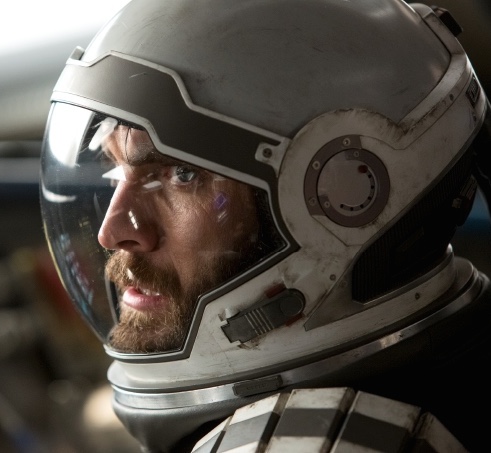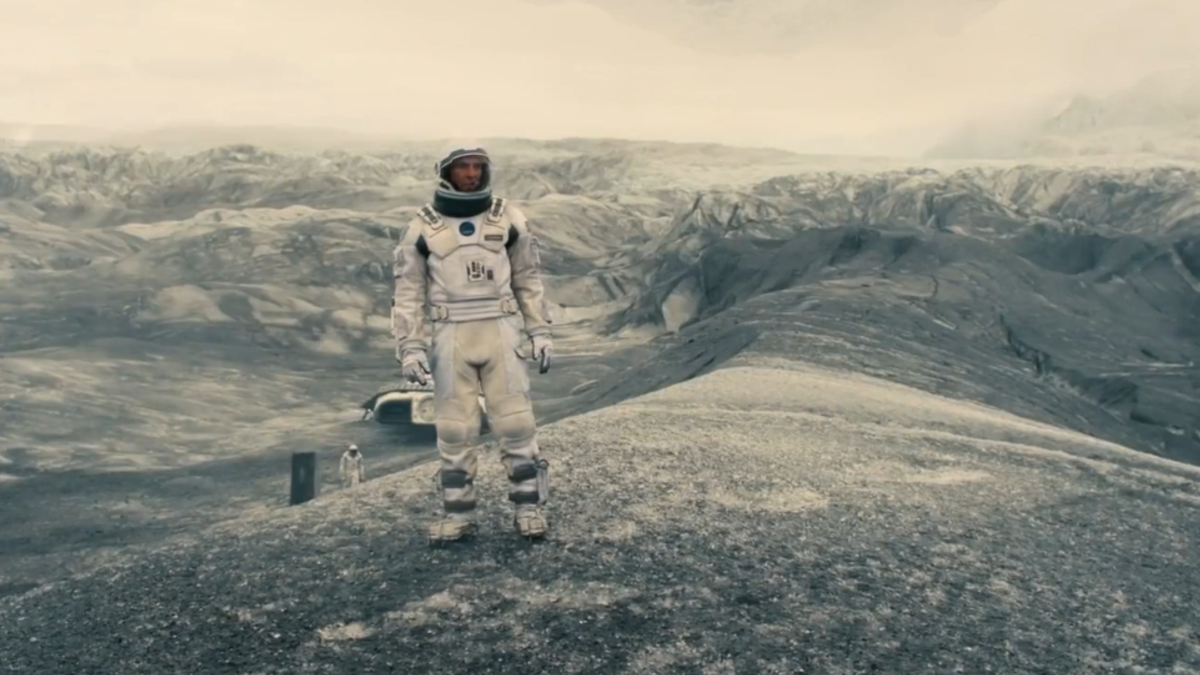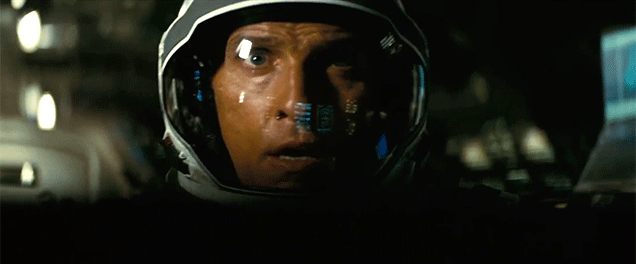 Michael C here with your weekend review...
Michael C here with your weekend review...
With its plot about humanity taking the next step of evolution into outer space, it was inevitable that Christopher Nolan’s Interstellar would be compared to 2001: A Space Odyssey. But despite surface similarities the comparison is a poor one. Nolan has never shown any inclination towards the kind of mind-expanding abstractions that constitute Kubrick’s version of the infinite. It is no coincidence that Interstellar’s plot centers around Jessica Chastain’s quest to complete an equation. Nolan movies demand answers. Even when his films appear to be ambiguous they pull back to reveal an underlying order. The mysteries of The Prestige are shown to be a complex web of interlocking secrets; the infamous spinning totem from Inception’s ending isn’t an enigma so much as the precise punchline to an elaborate riddle. Even the blazing anarchy of the Joker takes the form of moral conundrums with tidy binary choices.
So to complain that Nolan is no Kubrick is both accurate and something of a non-sequitor. Nolan is not going to stop being Nolan and whether that qualifies as a good thing will vary according to viewers’ willingness to ignore the persistent groaning sound of the plot buckling under the weight of ponderous exposition. Interstellar is no different than Nolan’s other films in this regard, but it’s also the same in that its peaks are so amazing they justify wading through all manner of shortcomings to reach them. Interstellar may be overstuffed and clunky and it crosses the line into silliness more than once, but every so often it will lay a fingertip or two on the sublime. How many films can make that claim?

Interstellar delivers one of its most potent images right at the start: a shelf of books disappearing behind the accumulating dirt that drifts relentlessly through the air in this grim picture of the future. The meaning is clear. Earth is finished with us and the air itself is shoveling dirt over our grave.
In a distant, unspecified year the environment is in its final death throes, as Earth’s plant life fail one by one until corn is the only crop left (we join the story just in time to catch the last glimpse of okra). People console each other with the feeble optimism that “next year will be better” although the signs only point to worse. Only a small fraction of the Earth’s population remains, most of whom have turned to farming to try to maintain viable levels of food production. Matthew McConaughey delivers a terrific leading man turn as one such farmer, a decommissioned NASA pilot and widower named Cooper who spends his days putting on a happy face for his son and daughter and lamenting humanity’s vanished capacity to look at the skies with wonder.
As luck would have it, he need not despair. NASA still exists as an underground organization, and when Cooper stumbles upon their secret headquarters led by his former physics professor and his professor’s scientist daughter (Michael Caine and Anne Hathaway) they enlist him in their Hail Mary pass to save the human race: a mission to find a new inhabitable planet to start over. Cooper is the natural choice to lead the mission, although it would not only risk his life, but on the slim chance the mission is a success, the realities of intergalactic travel mean his children could grow old and die by the time he returns.
“We must think not as individuals but as a species,” says Michael Caine’s NASA physicist. “We must confront the reality of interstellar travel.” The film would have benefitted from Nolan following through more ruthlessly on this idea. Interstellar does find frequent moments of grandeur, but the imagination of the script by Nolan and his brother Jonathan doesn’t quite keep pace with its scope. It is more than a bit deflating when McConaughey reaches the brink of something truly awe-inspiring, a place where the film promises to reach the limits of human understanding and crash through to the other side, only to have the script reveal one more twist in its clockwork plot. In Interstellar the vast expanses of space are no match for the bond of love between father and daughter. It’s a moving sentiment but also disappointingly small one when placed against a backdrop of such unfathomable scale.
Nolan is such a gifted creator of images that stick in the viewers' imagination that I found myself wishing Interstellar would stop hammering us with how important every beat of the story is and trust the visuals to carry the meaning. One gets more from the sight of their spacecraft glancing off a low hanging bank of frozen clouds than from minutes of urgently mapping out the plot on a white board. It requires so much breathless explanation to keep the various threads of the story straight that the film often doesn’t have time to pause and enjoy the dividends of all that world building. There is a moment where characters become separated on different temporal planes and one character ages decades in what for the rest is only minutes. It should be one of the film’s emotional epiphanies but it barely registers as the plot hustles along.
I would be easy to continue dwelling on the film’s flaws like how punishing Hans Zimmer’s score is (and I enjoy BIG scores, including Inception) or how I’m 98% certain the logic of the story doesn’t hold up to mild scrutiny (such are the pitfalls of over-explaining), but even with these failings the bottom line is that that anyone who skips the film will be missing out on some incredible cinema. I don’t think a film should get credit merely for having ambition but respect is due for getting within striking distance of transcendence.

Grade:What do you give a film that hums along at a C+ for most of the running time but spikes up to an A-/A during those moments when all the elements align? Since I can't pull out the white board and explain how it achieved a singularity of all grades simultaneously let's call it a B.